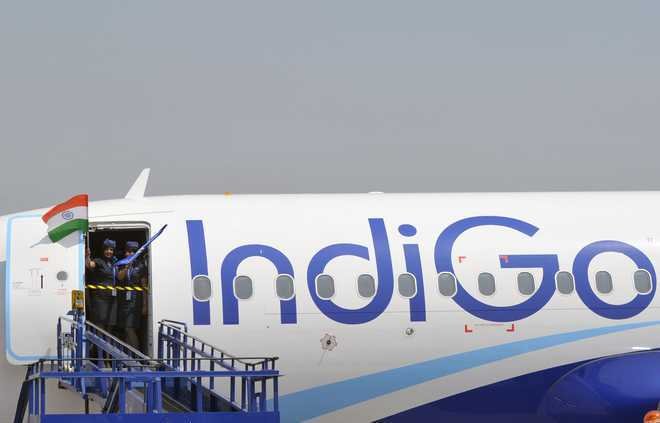India’s largest airline IndiGo published its first ever Environment Social Governance Report to showcase its efforts in sustainable aviation. The report comes amid IndiGo’s process of raising Rs 3,000 crore through a Qualified Institutional Placement (QIP) process and is likely an effort to attract marquee overseas funds which are focusing increasingly more on sustainable investing.
While listing down its efforts to cut carbon emission, IndiGo said that it is exploring the potential of using sustainable aviation fuel (SAF) in aircraft and the airline has signed a memorandum of understanding (MoU)with an international SAF provider.
“This first report in the field of Environment, Social, and Governance (ESG), is our attempt to provide an insight into the multiple efforts being made by IndiGo to protect and nourish the biodiversity of our miraculous planet. Sustainability is being integrated with day-to-day operations, and through our membership of IATA and our own focus, we are determined to be in the leading rank of airlines around the world in this critical effort,” said IndiGo CEO Ronojoy Dutta.

The airline said that in order to cut carbon footprint, it is undertaking steps like fleet modernisation by phasing out older Airbus A320 CEO aircraft for the more fuel efficient A320 Neo aircraft, implementing weight reduction measures on board; optimising flight routes; improving flight operations; and following fuel-efficient best practices.
“At IndiGo, we also believe that the use of all the above practices combined together cannot match the impact which can be created by sustainable aviation fuels (SAF). However, we also understand that SAF is not in mass production,” the airline said, adding that it aims to reduce its carbon dioxide (CO2) emission by 18 percent per available seat kilometer (ASK) in 2022-23 as compared to 2015-16.
ASK measures passenger carrying capacity of the airline and it is calculated by multiplying the total number of seats in flights to the total number of kilometres flown by them.
The airline said it saved 4.67 lakh tonnes of aviation turbine fuel between 2014-15 to 2020-21.
Many airlines, which are among the world’s biggest carbon emitters, have started taking steps to improve their environmental impact, a move intended to appease both climate-conscious consumers, regulators and lenders. Banks are beginning to shun high-emitting industries, such as coal, there is a growing push to help carbon-intensive companies make their operations greener.
American airline JetBlue recently raised a $550m sustainability-linked loan, which was set up by French bank BNP Paribas which is priced according to its performance on environmental and social matters- the first of its kind in the airline industry. Its counterpart American Airlines also publishes a regular ESG Report intended to develop intermediate goals for reduction of carbon footprint.
“Investors will increasingly favour aviation businesses with high ESG ratings — signalling more resilience and creating long-term business bets. ESG incentives in financing and investment present an opportunity for the aviation industry to shake off its reputation for greenwashing and to positively impact environmental sustainability over the long-term,” Baker McKenzie, one of the world’s largest law firms said in a recent note.






















